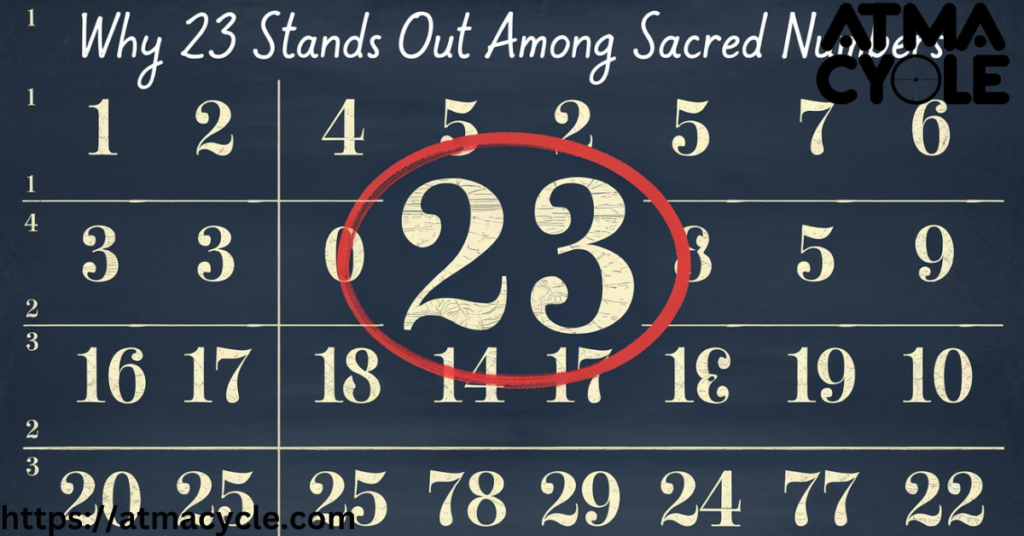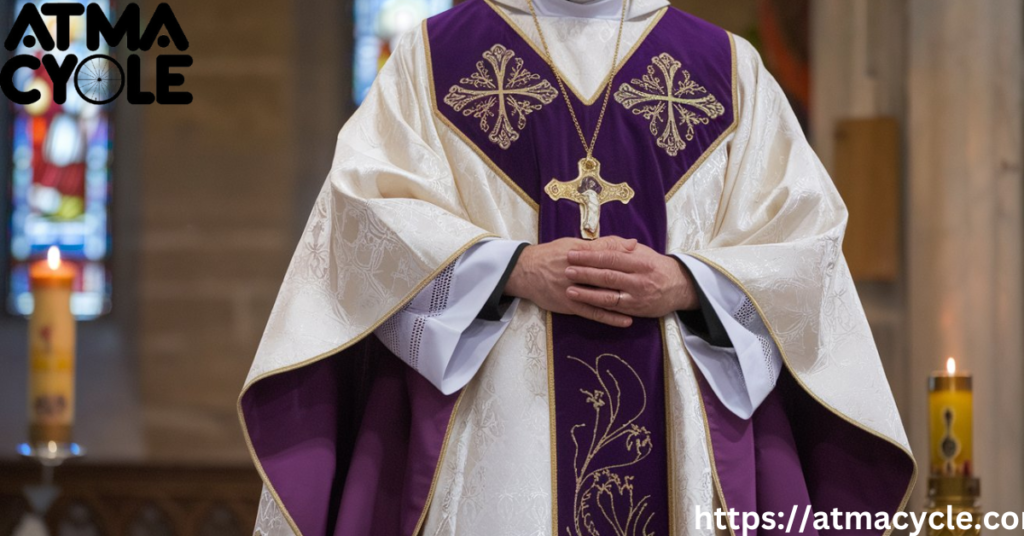In the vast tapestry of biblical numerology, certain numbers stand out, weaving intricate patterns of meaning throughout scripture. Among these, the biblical significance of 23: unraveling the sacred secrets holds a unique place, often overlooked yet rich with symbolism and spiritual significance.
This exploration delves deep into the biblical context of 23, unraveling its sacred mysteries and shedding light on its role in both the Old and New Testaments.
The Allure of Biblical Numerology
“Biblical numerology, or the study of numbers in scripture, has captivated scholars and believers for centuries. Furthermore, it’s a field that seeks to uncover hidden meanings and divine messages encoded in the very fabric of the Bible.”
While some approach this subject with skepticism, others find profound spiritual insights in the recurring patterns of numbers throughout sacred texts.
“Numbers are the hidden language of God.” – Pythagoras
This ancient wisdom reminds us that numbers can serve as a bridge between the physical and spiritual realms, offering glimpses into divine order and purpose.
The study of biblical numerology isn’t merely an academic exercise; it’s a journey into the heart of scripture, revealing layers of meaning that might otherwise remain hidden.
The Foundation of Biblical Symbolism
“To fully appreciate the significance of 23 in the Bible, we must first understand the broader context of numerical symbolism in scripture. Indeed, numbers in the Bible often carry symbolic weight beyond their literal value.”
- Seven: Often represents completeness or perfection
- Twelve: Associated with God’s people and divine government
- Forty: Symbolizes testing or trial periods
“These patterns not only form a rich tapestry of meaning but also invite readers to look beyond the surface and discover deeper spiritual truths.”
Why 23 Stands Out Among Sacred Numbers

While numbers like 7, 12, and 40 often take center stage in biblical discussions, 23 emerges as a subtle yet powerful player in scripture. Its significance lies not in its frequency, but in the pivotal moments and concepts it’s associated with. Let’s embark on a journey through the Bible to uncover the hidden depths of this intriguing number.
The Subtle Power of 23
Unlike more prominent biblical numbers, 23 operates in the background, often appearing at crucial junctures or in connection with significant themes. Its power lies in its ability to bridge the mundane and the divine, offering insights into:
- Divine calling and purpose
- Sacred service and priesthood
- God’s sovereignty and judgment
- Life and vitality
- Transformation and new beginnings
As we explore these connections, we’ll see how 23 not only weaves its way through scripture but also leaves a trail of spiritual breadcrumbs for the discerning reader to follow.
23 in the Old Testament: More Than Meets the Eye
“The Old Testament indeed provides rich soil for our exploration of 23’s significance. From its very first appearance to its subtle influence on key figures and events, 23 undoubtedly plays a fascinating role in the Hebrew scriptures.”
First Appearance: Numbers 26:62

The number 23 makes its debut in a census of the Levites:
| Verse | Content |
|——-|———|
| Numbers 26:62 | “And those who were numbered were twenty-three thousand, every male from a month old and upward. For they were not numbered among the children of Israel, because there was no inheritance given them among the children of Israel.” |
“This initial appearance thus sets the tone for 23’s association with God’s sovereignty and judgment. Moreover, the Levites, set apart for sacred service, are counted separately, further highlighting their unique role and the divine order in Israel’s structure.”
Significance of the Levites’ Count
The fact that there were 23,000 Levites is not a mere statistical detail. It underscores several important themes:
- Separation for Sacred Service: The Levites were set apart for a specific purpose, much like the number 23 itself stands apart in biblical numerology.
- Divine Order: The precise count reflects God’s attention to detail and the orderly nature of His plans.
- Exclusion from Inheritance: This unique status of the Levites points to a higher calling, transcending earthly possessions.
Abraham’s 23rd Mention: A Turning Point
In Genesis 17:5, we encounter the 23rd mention of Abraham’s name:
“No longer shall your name be called Abram, but your name shall be Abraham; for I have made you a father of many nations.”
“This pivotal moment thus marks a transformational covenant between God and Abraham, further emphasizing themes of divine guidance and spiritual significance.”
The Power of a Name Change

The significance of this 23rd mention goes beyond mere coincidence:
- It marks a fundamental shift in Abraham’s identity and purpose
- The name change signifies a new beginning, aligning with 23’s themes of transformation
- This covenant sets the stage for the entire biblical narrative of redemption
Psalm 23: A Deeper Look at Its Placement
Perhaps the most famous “23” in scripture, Psalm 23 offers comfort and assurance of God’s protection. Its position as the 23rd psalm isn’t coincidental but loaded with meaning:
- Shepherd imagery: Reflects God’s guidance and care
- Green pastures and still waters: Symbolizes divine provision
- Valley of the shadow of death: Represents God’s presence in trials
The placement of this beloved psalm at number 23 reinforces themes of divine guidance and God’s sovereignty.
Unpacking Psalm 23’s Timeless Message
Let’s break down some key elements of this powerful psalm:
- “The Lord is my shepherd”: Establishes a personal, caring relationship with God
- “I shall not want”: Speaks to God’s complete provision
- “He restores my soul”: Highlights spiritual renewal and healing
- “Your rod and Your staff, they comfort me”: Represents both discipline and support
- “You prepare a table before me in the presence of my enemies”: Shows God’s protection and honor bestowed on His followers
- “Surely goodness and mercy shall follow me”: Promises ongoing divine favor
“This psalm, intentionally situated in its 23rd position, not only encapsulates a variety of themes but also regularly associates with the number 23 throughout scripture: divine guidance, protection, transformation, and life itself.”
Priestly Connections: 23 and Sacred Service
The number 23 appears to have a special connection to the priesthood and sacred service in the Bible. This association further cements its importance in biblical numerology.
23 Elements of Priestly Garments
Exodus 28 details the intricate design of the High Priest’s garments. Interestingly, there are 23 items required for their construction:
- Ephod
- Breastpiece
- Robe
- Woven tunic
- Turban
- Sash
- Linen undergarments
- Gold thread
- Blue yarn
- Purple yarn
- Scarlet yarn
- Fine linen
- Gold bells
- Pomegranates
- Gold plate (for the turban)
- Blue cord (for the plate)
- Onyx stones
- Gold settings
- Twelve gemstones
- Chains of pure gold
- Rings of gold
- Braided chains of pure gold
- Linen miters
This meticulous list underscores the importance of 23 in Psalms and its connection to sacred service and devotion.
Symbolism in the Priestly Garments

Each element of the priestly attire carried deep symbolic meaning:
- Ephod: Represented God’s authority
- Breastpiece: Symbolized judgment and decision-making
- Blue, purple, and scarlet yarn: Reflected royalty and sacrifice
- Gold bells and pomegranates: Signified the fruitfulness of ministry and the call to worship
The fact that there are 23 elements speaks to the completeness and divine ordination of the priestly role.
Aaron’s 23rd Mention: A Sacred Calling
In Exodus 29:35, we find the 23rd mention of Aaron:
“Thus you shall do to Aaron and to his sons, according to all that I have commanded you. Seven days shall you ordain them.”
This verse marks the culmination of Aaron’s ordination as High Priest, further cementing the link between 23 and the priesthood.
The Significance of Aaron’s Ordination
The 23rd mention of Aaron coinciding with his ordination is rich with meaning:
- It marks the transition from ordinary to sacred service
- The seven-day ordination process aligns with biblical patterns of completion
- This moment establishes the Aaronic priesthood, a crucial element of Israel’s worship
The connection to 23 here suggests a divine stamp of approval on the priestly office and its functions.
New Testament Insights: 23 and Divine Purpose
As we move into the New Testament, the significance of 23 takes on new dimensions, particularly in relation to Jesus and the fulfillment of God’s redemptive plan.
23 Generations: Adam to Jacob
Luke’s genealogy of Jesus (Luke 3:23-38) reveals an intriguing pattern:
| Generation | Name |
|---|---|
| 1 | Adam |
| … | … |
| 23 | Jacob |
This alignment suggests a profound connection between 23 and the fulfillment of divine promises, echoing themes of biblical prophecy and God’s sovereignty.
The Significance of Genealogies
Biblical genealogies are more than just family trees; they serve several important purposes:
- Establishing Legitimacy: They prove Jesus’ lineage from David, fulfilling messianic prophecies
- Demonstrating God’s Faithfulness: They show how God kept His promises through generations
- Revealing Patterns: The structure of genealogies often contains hidden numerical significance
The fact that Jacob appears as the 23rd generation from Adam may point to the special role of Israel (Jacob’s new name) in God’s plan.
Jesus’ 23rd Mention in Matthew: A Call to Discipleship
Matthew 9:9 marks the 23rd time Jesus’ name appears in this gospel:
“As Jesus passed on from there, He saw a man named Matthew sitting at the tax office. And He said to him, ‘Follow Me.’ So he arose and followed Him.”
This pivotal moment of calling emphasizes themes of divine guidance and personal transformation.
Unpacking the Call of Matthew
The significance of this being the 23rd mention of Jesus in Matthew’s gospel is multilayered:
- Transformation: Matthew leaves his old life behind, echoing 23’s association with new beginnings
- Divine Purpose: The call to discipleship aligns with 23’s connection to sacred service
- Bridging Worlds: As a tax collector turned disciple, Matthew represents the bridging of the secular and sacred, a theme we’ve seen with 23
This moment encapsulates many of the themes we’ve associated with 23: divine calling, transformation, and sacred purpose.
23 and Biblical Concepts: Rebellion and Redemption

The number 23 in scripture often appears in contexts that highlight the tension between human rebellion and divine redemption. This adds another layer to our understanding of its spiritual significance.
23,000 Fallen: A Lesson in Consequences
1 Corinthians 10:8 recounts a sobering event:
“Nor let us commit sexual immorality, as some of them did, and in one day twenty-three thousand fell.”
This reference to Numbers 25:9 serves as a stark reminder of the consequences of rebellion, illustrating God’s judgment and the need for obedience.
The Context of Israel’s Sin
To fully appreciate the significance of this event, we need to understand its context:
- Israel had fallen into idolatry and sexual immorality with the Moabites
- This sin represented a breach of their covenant with God
- The judgment was swift and severe, demonstrating God’s holiness
The fact that 23,000 fell in one day connects 23 to themes of divine judgment, but also to the possibility of redemption through repentance.
The 23rd ‘Judge’: Balancing Justice and Mercy
Deuteronomy 16:18 contains the 23rd mention of ‘judge’ in the Bible:
This verse encapsulates the delicate balance between justice and mercy, a theme that not only resonates throughout scripture but also connects to the concept of grace and redemption in the Bible.
The Role of Judges in Israel
The institution of judges in Israel served several crucial functions:
- Administering Justice: Ensuring fair treatment for all members of society
- Interpreting God’s Law: Applying divine principles to everyday situations
- Mediating Conflicts: Resolving disputes among the people
- Spiritual Leadership: Often serving as both judicial and spiritual authorities
The 23rd mention of ‘judge’ falling on this particular verse highlights the importance of just leadership and its connection to divine order.
Linguistic Connections: 23 in Ancient Languages

The significance of 23 in the Bible is further enriched when we consider its linguistic connections in the original languages of scripture.
Hebrew Gematria: 23 as “Life”
In Hebrew numerology, known as gematria, 23 corresponds to the word “chaiah,” meaning “life” or “living”:
- Chet (ח) = 8
- Yod (י) = 10
- Hei (ה) = 5
- Total = 23
This connection adds depth to the spiritual significance of 23, linking it to vitality and existence itself.
The Concept of “Life” in Hebrew Thought
The Hebrew understanding of “life” goes beyond mere biological existence:
- It encompasses fullness of being
- It implies connection with the divine source of life
- It often relates to blessing and prosperity
This linguistic connection reinforces 23’s associations with transformation, new beginnings, and divine purpose.
Greek Isopsephy: Early Christian Symbolism
While less prominent in Greek, some early Christian writings show awareness of number symbolism, potentially including 23. This awareness reflects the broader context of numerology in Christianity.
Examples of Greek Numerical Symbolism
While 23 may not have a direct Greek equivalent, other numbers played significant roles in early Christian thought:
- 888: The numerical value of “Jesus” in Greek, seen as the number of the Redeemer
- 666: The infamous “number of the beast” in Revelation
- 153: The number of fish caught by the disciples in John 21, often interpreted symbolically
These examples demonstrate the continuity of numerical symbolism from Hebrew to Greek scripture and early Christian interpretation.
Controversial Interpretations: Separating Fact from Fiction
As with many aspects of biblical numerology, some fringe theories surround the number 23. It’s crucial to approach these with critical thinking and scholarly rigor. While hidden meanings in the Bible can offer valuable insights, we must be cautious of over-interpretation or baseless speculation.
Common Misconceptions About 23
Some popular but unfounded claims about 23 include:
- Doomsday Predictions: Some have used 23 to predict the end of the world, despite no biblical basis for this
- Occult Associations: Certain groups have tried to link 23 to occult practices, ignoring its positive biblical connotations
- Conspiracy Theories: The number has been incorporated into various conspiracy theories, often taking biblical references out of context
Guidelines for Responsible Interpretation
To avoid falling into speculative traps, consider these principles:
- Context is King: Always consider the historical and literary context of a passage
- Consistency: Look for consistent patterns across scripture, not isolated incidents
- Scholarly Consensus: Be aware of what reputable biblical scholars say about a particular interpretation
- Humility: Recognize that some aspects of scripture remain mysterious and resist definitive interpretation
By following these guidelines, we can appreciate the richness of biblical numerology without veering into unfounded speculation.
23 Beyond the Bible: A Broader Perspective
While our focus is on biblical symbolism of numbers, it’s worth noting that 23 appears in other religious and cultural contexts. This broader perspective can enrich our understanding of its significance.
Comparative Religious Studies
23 holds significance in various religious and cultural traditions:
- Islam: The Quran was revealed over 23 years
- Hinduism: The Titan god Ravana is said to have 23 tattoos
- Astronomy: The Earth’s axis is tilted at approximately 23.5 degrees
These parallels highlight the universal fascination with numbers and their potential spiritual significance.
The 23 Enigma in Popular Culture
Beyond religious contexts, 23 has captured the imagination of many in the modern world:
- Literature: William Burroughs was fascinated by 23, incorporating it into his works
- Film: The movie “The Number 23” explores obsession with this number
- Sports: Basketball legend Michael Jordan wore the number 23
While these cultural references don’t have direct biblical significance, they demonstrate the enduring intrigue surrounding this number.
The Tapestry of Biblical Numerology: 23’s Unique Thread
As we’ve explored, 23 weaves a subtle yet meaningful pattern throughout scripture. Its associations include:
- Divine calling and purpose –
- God’s sovereignty and judgment
- Life and vitality
- Transformation and new beginnings
While not as prominent as some other biblical numbers, 23 offers a unique perspective on God’s sovereignty and judgment, as well as themes of grace and redemption in the Bible.
Synthesizing the Significance of 23

When we step back and look at the broader picture, several key themes emerge in our study of 23:
- Bridging the Divine and Human: 23 often appears at moments where the human and divine intersect, such as in priestly duties or moments of divine calling.
- Transformation and New Beginnings: From Abraham’s name change to Matthew’s call to discipleship, 23 is associated with pivotal moments of change.
- Sacred Service: The connection to the priesthood and the Levites highlights 23’s association with dedication to God’s work.
- Life and Vitality: The Hebrew linguistic connection to “life” underscores 23’s link to the very essence of existence.
- Divine Order and Judgment: Whether in census numbers or accounts of God’s judgment, 23 often appears in contexts of divine sovereignty.
Case Study: The 23rd Psalm
To illustrate how these themes come together, let’s revisit Psalm 23 as a case study:
The LORD is my shepherd; I shall not want.
He makes me lie down in green pastures.
He leads me beside still waters.
He restores my soul.
He leads me in paths of righteousness for his name’s sake.
Even though I walk through the valley of the shadow of death,
I will fear no evil, for you are with me;
your rod and your staff, they comfort me.
You prepare a table before me in the presence of my enemies;
you anoint my head with oil; my cup overflows.
Surely goodness and mercy shall follow me all the days of my life,
and I shall dwell in the house of the LORD forever.
In this beloved psalm, we see many of the themes associated with 23:
- Divine Guidance: The shepherd imagery speaks to God’s leadership and care
- Life and Vitality: Green pastures and still waters represent abundant life
- Transformation: The restoration of the soul implies a change from distress to peace
- Sacred Service: Dwelling in the house of the LORD suggests dedication to God
- Divine Protection: God’s presence even in the “valley of the shadow of death” shows His sovereignty
The placement of this psalm as the 23rd in the book seems far from coincidental when we consider these thematic connections.
Practical Applications: Bringing 23’s Significance to Life
Understanding the biblical significance of 23 isn’t merely an academic exercise. It can enrich our spiritual lives and deepen our engagement with scripture. Here are some practical ways to apply these insights:
- Reflection on Divine Calling: Meditate on moments in your life where you’ve felt a sense of divine purpose or calling, much like the 23rd mention of Jesus calling Matthew.
- Embracing Transformation: Use the themes of 23 to inspire personal growth and openness to God’s transformative work in your life.
- Dedication to Sacred Service: Consider how you might dedicate yourself more fully to serving God, inspired by the priestly associations of 23.
- Appreciation of Life: Reflect on the Hebrew connection between 23 and “life,” cultivating gratitude for the gift of existence.
- Trust in Divine Sovereignty: When facing challenges, remember the themes of God’s sovereignty associated with 23, finding comfort in His overarching plan.
Incorporating 23 into Bible Study
For those who enjoy deeper biblical study, here are some ways to incorporate insights about 23:
- Thematic Study: Look for themes of transformation, divine calling, or sacred service as you read scripture, noting any connections to the number 23.
- Cross-referencing: When you encounter the number 23 in a passage, cross-reference it with other occurrences to see if thematic patterns emerge.
- Linguistic Exploration: If you’re studying Hebrew, pay attention to words that have a gematria value of 23, reflecting on their meanings in context.
Conclusion: Embracing the Mystery
The study of numbers like 23 in scripture invites us to engage more deeply with the text, seeking layers of meaning beyond the surface. While we must be cautious of overinterpretation, thoughtful exploration of biblical numerology can enrich our understanding and appreciation of God’s word.
“The Bible is full of mysteries, and numbers are one way God speaks to us through His Word.” – Chuck Missler
“As we further unravel the sacred secrets of 23 and other significant numbers, may we approach scripture with reverence, curiosity, and an openness to divine wisdom. Indeed, the journey of discovery in God’s Word is endless, and numbers like 23 certainly serve as intriguing signposts along the way.”
Final Thoughts on Biblical Numerology
As we conclude our exploration of 23’s biblical significance, it’s worth reflecting on the broader implications of numerical symbolism in scripture:
- Divine Intricacy: The presence of numerical patterns points to the intricate design of God’s Word.
- Layers of Meaning: Numbers add another dimension to biblical interpretation, enriching our understanding.
- Invitation to Deeper Study: Numerical symbolism encourages us to dig deeper into scripture, not being content with surface-level readings.
- Unity of Scripture: Recurring numerical themes highlight the unity of the Bible across diverse books and authors.
- Humility in Interpretation: The complexity of biblical numerology reminds us of the depths of God’s wisdom and the limitations of our understanding.
As we engage with biblical numerology, including the significance of 23, may we do so with a spirit of wonder, humility, and devotion, always seeking to draw closer to the Author of scripture in the process.
FAQ:
Q1: Is 23 considered a “holy” number in the Bible?
While 23 isn’t typically categorized as a “holy” number like 7 or 12, it holds significant symbolic weight in various biblical contexts. Its importance lies more in its associations with divine purpose, sacred service, and pivotal moments in scripture rather than an inherent holiness.
Consider these points:
- 23 appears in connection with priestly duties (Exodus 28)
- It’s linked to transformative moments (Genesis 17:5, the 23rd mention of Abraham)
- Psalm 23, one of the most beloved passages, bears this number
So while not “holy” in the traditional sense, 23 carries spiritual significance that rewards deeper study. It’s a number that often bridges the divine and human realms, appearing at moments of transformation or sacred calling.
Q2: How does the symbolism of 23 in the Bible compare to other significant numbers?
23’s role in biblical numerology is more subtle than prominent numbers like 7, 12, or 40. However, its unique symbolism offers valuable insights:
| Number | Primary Symbolism | 23’s Unique Aspect |
| 7 | Completeness, perfection | Sacred service, transformation |
| 12 | God’s people, divine government | Individual calling, life |
| 40 | Testing, trials | Divine purpose, judgment |
| 23 | Priesthood, life, divine calling | Bridges human and divine realms |
23 often appears at pivotal moments or in connection with sacred duties, offering a nuanced perspective on God’s interaction with humanity. Unlike more frequently occurring numbers, 23’s significance often lies in its quality rather than quantity of appearances.
Key aspects of 23’s symbolism include:
- Transformation and new beginnings
- Sacred service and priesthood
- Life and vitality
- Divine calling and purpose
- God’s sovereignty and judgment
Q3: Are there any specific prayers or verses related to the number 23 in scripture?
The most famous biblical text associated with 23 is undoubtedly Psalm 23. While not a prayer in the traditional sense, many believers use it as a meditation or prayer for comfort and guidance. Its opening lines are iconic:
“The Lord is my shepherd; I shall not want. He makes me lie down in green pastures…”
Psalm 23 encapsulates many themes associated with the number 23:
- Divine guidance and protection
- Provision and abundance
- Restoration and renewal
- Eternal security in God’s presence
Beyond Psalm 23, there aren’t prayers specifically tied to the number. However, verses where 23 appears or is counted (like Numbers 26:62 or 1 Corinthians 10:8) can serve as focal points for reflection on themes like:
- Divine calling
- Sacred service
- God’s sovereignty
- Life and vitality
While not a prayer, Genesis 17:5 (the 23rd mention of Abraham) could be used as a meditation on God’s transformative power:
“No longer shall your name be called Abram, but your name shall be Abraham; for I have made you a father of many nations.”
Q4: What is the consensus among mainstream biblical scholars about 23’s importance?
Opinions on 23’s significance vary among scholars, but here’s a general overview:
- Acknowledged Connections: Many scholars recognize potential significance in 23’s appearances, particularly its links to priesthood and divine purpose.
- Caution Against Over-interpretation: There’s a general warning against reading too much into number patterns without solid textual or historical evidence.
- Context is Key: Most emphasize the importance of understanding 23’s role within the broader context of each passage.
- Varied Interpretations: Some see 23 as mainly coincidental, while others argue for intentional symbolic use in certain texts.
- Call for Further Research: Many scholars encourage continued study of lesser-known number patterns in scripture, including 23, as part of a holistic approach to biblical numerology.
The consensus seems to be that while 23 holds interesting symbolic potential, its significance shouldn’t be overstated or divorced from careful textual analysis. Scholars generally agree that:
- 23’s appearances in priestly contexts are noteworthy
- Its connection to life and transformation in Hebrew gematria is interesting
- The placement of Psalm 23 may be intentional
- More research is needed to fully understand its role in biblical numerology
Q5: How can studying numbers like 23 enrich our understanding of scripture?
Exploring biblical numerology, including numbers like 23, can deepen our engagement with scripture in several ways:
- Reveals Hidden Patterns: It can uncover connections between passages that aren’t immediately obvious. For example, linking the 23 items of priestly garments to themes of sacred service.
- Encourages Close Reading: Searching for number patterns promotes careful, attentive study of the text. This can lead to discoveries beyond numerology.
- Highlights Themes: Certain numbers often correspond to specific themes, helping readers track these concepts throughout scripture. With 23, themes of transformation and divine calling become more apparent.
- Provides Historical Context: Understanding ancient Near Eastern numerology can shed light on the cultural background of biblical texts.
- Sparks Curiosity: Number symbolism can pique interest in less-studied passages or books of the Bible, encouraging broader scriptural engagement.
- Deepens Appreciation: Recognizing the complexity of biblical composition can increase awe for the text’s intricacy and potential divine design.
- Invites Meditation: Contemplating number symbolism can lead to deeper spiritual reflection on biblical themes. Psalm 23’s placement, for instance, invites meditation on divine guidance.
Remember, while numerology can offer valuable insights, it should always be balanced with sound exegesis and historical-grammatical interpretation.
Q6: Are there any connections between the number 23 in the Bible and modern-day prophecy or end-times theories?
The connection between 23 and modern prophecy or end-times theories is tenuous at best. Here’s what you need to know:
- Limited Biblical Basis: There’s no direct link between 23 and end-times prophecy in scripture. Unlike numbers like 666 or 7, 23 doesn’t feature prominently in apocalyptic literature.
- Fringe Theories: Some modern writers have attempted to connect 23 to apocalyptic ideas, but these lack scholarly support. Examples include:
- Attempts to use 23 in date calculations for the end times
- Claims about 23’s role in supposed Bible codes
- Theories linking 23 to secret societies or global conspiracies
- Potential for Misuse: Numbers like 23 can be easily manipulated to fit predetermined theories, leading to unsound interpretations. This is often seen in:
- Selective use of statistics or dates
- Arbitrary mathematical operations to produce desired results
- Ignoring context or established interpretive principles
- Focus on Core Themes: Most reputable scholars emphasize focusing on clear biblical teachings about the end times rather than speculative numerology. Key end-times themes include:
- The return of Christ
- Resurrection and judgment
- The establishment of God’s kingdom
- Historical Perspective: Throughout history, various numbers have been incorrectly associated with the end times, highlighting the need for caution. Past examples include:
- Predictions based on the year 1000 AD
- Theories about the significance of 1666
- Various calculations using 2000 or 2012
Instead of seeking hidden prophetic meanings in 23, it’s more beneficial to consider its established biblical associations with themes like divine calling, sacred service, and God’s sovereignty. These concepts have relevance for believers in all times, including our own.
When approaching any numerical interpretation of scripture, especially in relation to prophecy, it’s crucial to:
- Prioritize clear biblical teachings
- Consider historical and literary context
- Consult reputable scholarship
- Remain humble about our ability to predict or decode divine timelines







